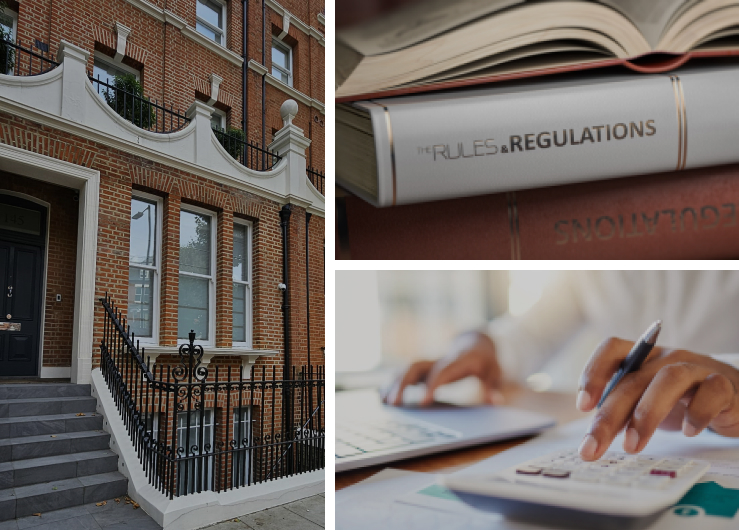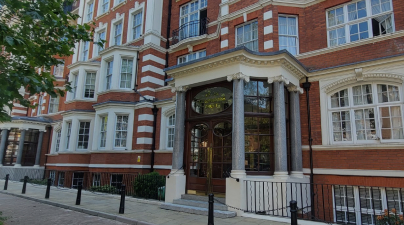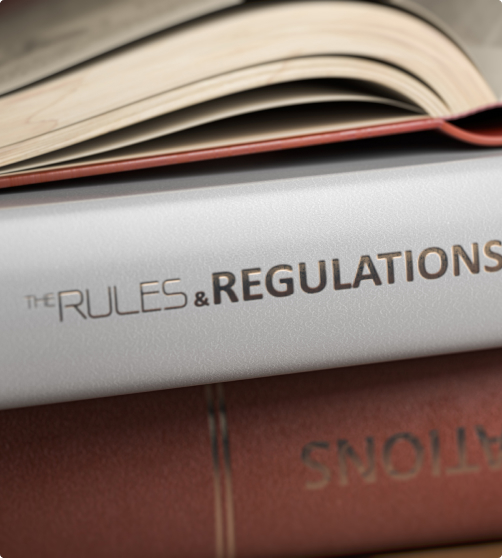Not just accounting, expert service charge accounting
Not just accounting, expert service charge accounting
In the service charge world t is the lease that sets out whether a service charge audit is required or a service charge verification. Many accountants fail to understand what the lease requires leaving Clients paying too much. Some leases require audit on very small sites, if so we can help use Section 37 of the 1985 Landlord & Tenant Act to get this changed.
To audit or not to audit?
The term audit is widely used in respect of the review of the annual statement of service charge expenditure, by an independent accountant. The word audit (which applies to all sectors and industries), and is defined as an ‘official examination and verification of accounts, and records especially of financial accounts' (dictionary.com).
Whilst the word audit is banded around quite freely; it is a myth that an annual statement of service charge expenditure, by an independent accountant, is an audit report. An audit today has greater scope than originally envisaged at the inception of many leases, here lies the problem.
The accounting profession defines audit in the International Standard on Auditing (UK and Ireland) ISA 200. This states:
“The objective of an audit of financial statements is to enable the auditor to express an opinion, whether the financial statements are prepared, in all material respects, in accordance with an applicable financial reporting framework. The phrases used to express the auditor's opinion are ‘give a true and fair view' or ‘present fairly, in all material respects, which are equivalent terms.” It continues: The term ‘scope of an audit' refers to the audit procedures deemed necessary in the circumstances to achieve the objective of the audit. The audit procedures required to conduct an audit in accordance with ISAs, relevant professional bodies, legislation, regulations and, where appropriate, the terms of the audit engagement and reporting requirements.”
So an independent auditor's report will be clearly titled as such and will include the phrases “give a true and fair view” or “present fairly, in all material respects.” If those criteria and a number of others are not met, then it is not an audit report. The matter is confused by some independent accountants, including ‘Registered Auditor' under their signature but, just because that phrase is included, it does not make it an audit report.
Audits are costly because if an audit is required, this should be completed in accordance with ISA 800, Audits of financial statements prepared in accordance with special purpose frameworks.
To make matters more complicated there is also a distinction between:
- an accounting audit,
- and a service management charge audit
Under Section 21, Landlord and Tenant Act, 1985 a specific request can be made by a lessee under S.21 for a summary of relevant costs. Section 21 reports must be made by a registered Auditor.




Property Service Charge Accountants
We are more than accountants, we are property accountants. All we do is property accounts which means service charge accounts, company accounts for Resident and Freehold Management Companies and RTM Companies.
Service charge accounting has to relate to what is permitted service charge expenditure under the lease and also for new build properties has to apportion expenses in the early days between the leaseholders and the developer. So, if you want to talk anything service charge accounts, get in touch today..
We won’t quibble if you want to change your BlockCare package
Call us
020 7267 2900Email us
md@ringley.co.ukIn the service charge world t is the lease that sets out whether a service charge audit is required or a service charge verification. Many accountants fail to understand what the lease requires leaving Clients paying too much. Some leases require audit on very small sites, if so we can help use Section 37 of the 1985 Landlord & Tenant Act to get this changed.
To audit or not to audit?
The term audit is widely used in respect of the review of the annual statement of service charge expenditure, by an independent accountant. The word audit (which applies to all sectors and industries), and is defined as an ‘official examination and verification of accounts, and records especially of financial accounts' (dictionary.com).
Whilst the word audit is banded around quite freely; it is a myth that an annual statement of service charge expenditure, by an independent accountant, is an audit report. An audit today has greater scope than originally envisaged at the inception of many leases, here lies the problem.
The accounting profession defines audit in the International Standard on Auditing (UK and Ireland) ISA 200. This states:
“The objective of an audit of financial statements is to enable the auditor to express an opinion, whether the financial statements are prepared, in all material respects, in accordance with an applicable financial reporting framework. The phrases used to express the auditor's opinion are ‘give a true and fair view' or ‘present fairly, in all material respects, which are equivalent terms.” It continues: The term ‘scope of an audit' refers to the audit procedures deemed necessary in the circumstances to achieve the objective of the audit. The audit procedures required to conduct an audit in accordance with ISAs, relevant professional bodies, legislation, regulations and, where appropriate, the terms of the audit engagement and reporting requirements.”
So an independent auditor's report will be clearly titled as such and will include the phrases “give a true and fair view” or “present fairly, in all material respects.” If those criteria and a number of others are not met, then it is not an audit report. The matter is confused by some independent accountants, including ‘Registered Auditor' under their signature but, just because that phrase is included, it does not make it an audit report.
Audits are costly because if an audit is required, this should be completed in accordance with ISA 800, Audits of financial statements prepared in accordance with special purpose frameworks.
To make matters more complicated there is also a distinction between:- an accounting audit,
- and a service management charge audit
Under Section 21, Landlord and Tenant Act, 1985 a specific request can be made by a lessee under S.21 for a summary of relevant costs. Section 21 reports must be made by a registered Auditor.
What is the alternative to Audited Accounts?
If the lease does not specify that an audit is required, the alternative is an examination resulting in a report of factual findings on the service charge accounts.The reporting accountant need not be a registered auditor. However, under the rules of the professional accounting bodies that issue this guidance, a member undertaking this work must hold a practising certificate and must comply with the body's Professional Indemnity Insurance Regulations. In addition, the member must show integrity and objectivity, and have the necessary competence for the assignment, in accordance with the body's Code of Ethics. The qualifications for undertaking reporting engagements is set out in law, S.21-28 of the Landlord & Tenant Act 1985. The reporting accountant should be independent, (which means not an employee or director, or associate), of the landlord/managing agent, or any associated company of the landlord or agent.
Are there any penalties for not producing service charge accounts?
Yes is the answer if there are 5 or more service charge payers. It is the 1985 Act that requires a summary account, and the fine for not doing so is set out under s.37 of the Criminal Justice Act 1982 as a Level 4 fine (£2,500). Also see s.21,22,23 & 25 1985 Landlord & Tenant Act.
A lease is a contract for the administration of service charges, and it refers to an audit, then in principle an audit should be carried out.
The terminology governing annual statements of account, particularly in older leases, may be quite general, and auditing standards and practice have changed fundamentally since the Auditing Practices Committee was established by the Consultative Committee of Accountancy Bodies (CCAB) in 1976, leading to the publication of the first Auditing Standards and Guidelines in April 1980. The work effort required by current auditing standards is unlikely to be what was anticipated, when older (pre 1980), leases were drawn up.
In practice, therefore, there is scope for the landlord to consider whether the terms in the lease may be construed according to the meaning given to those terms at the time when the lease was drawn up; whereas the term ‘audit' in a lease made before 1980 would not have involved any particular procedures beyond those needed to assist in the preparation of the accounts.
For leases drawn up since 1980, if the lease refers to an audit, then this is what should be undertaken. A decision to procure another type of examination could be challenged by a lessee, and if the case were taken to the First Tier Tribunal, you might fail to recover service charges on this basis.
If an audit is specified in the lease, but it is considered to be disproportionate to the circumstances of the property (for example, a relatively small property where the lessees are all members of a Management Company). Without such, you cannot displace the specific requirements of the lease. To eliminate the risk, you would need to apply to the First Tier Tribunal under S.37 of the 1987 Landlord & Tenant Act, to vary the lease. And, you would need 75% in favour and not less than 10% objecting, or all bar 1 in favour, where there are less than 9 flats.
If the terms of the lease should require or are construed as requiring, an audit, then an audit should be carried out. International Standard on Auditing 800 (ISA 800) Special Considerations – Audits of Financial Statements Prepared in Accordance with Special Purpose Frameworks, provides a framework for the audit of service charge accounts. See ISA 800.
Case law dictates that if the lease says audit, then an audit should be carried out. Should an owner feel an audit, to current auditing standards, will not represent value for money for the occupiers, then the lease would need to be varied, either by contract (variations to each lease) or by a Tribunal Order under Section 37 of the 1987 Landlord & Tenant Act. In accounting terms, other options are:- preparation of a report on factual findings (International Standard on Related Services [ISRS] 4400 Engagements to perform agreed-upon procedures regarding financial information)
- a review report (International Standard on Review Engagements (ISRE) 2400 Engagements to review financial statements).
Certified Service Charge Accounts – what does this mean?
There is a common misconception that in preparing a certified set of service charge accounts that the independent accountant certifies the expenditure, their actual role to report on the expenditure in the terms agreed with the owner or agent. It is rare that the independent accountant certifies the expenditure. This is because the independent accountant is not responsible for the preparation of the service charge statement and, in order to certify it as being 100% correct, they would have to re-perform the work of those managing the transactional cash movements. Advice from the Institute of Chartered Accountants in England and Wales is that the word ‘certify' is rarely used in an independent accountant's report.Good practice dictates that the certification statement that the Accountant adds should be included alongside the statement of service charge expenditure and should also state who prepared the accounts.
Commercial service charges
The 3rd Edition of the RICS Code Of Practice Service Charges In Commercial Property, states that the annual statement of service charge expenditure, should be certified by the manager as representing a true and accurate record of the expenditure incurred by the owner in supplying services to the building, and that the sum the owner is seeking to recover is in accordance with the lease.
The 4th edition of the RICS Service Charge Residential Management Code sets out that most leases set out the procedures regarding preparation of the annual statement and often require for them to be certified by the landlord's surveyor, managing agent and sometimes the landlord's accountant. In addition, certain leases might require the statement to be audited. And, that the contractual requirements in the lease are followed.
A frequent concern is that service charges lack transparency, monies spent were not budgeted, and/or the accounts were not reconciled in a timely manner. Here is where the Managing Agent takes the role of politician. For example,
New build developments
in the early years of a new build the Managing Agent will have to get the accounts agreed by the developer (to get contributions for void units), and then by the residents management company also. The residents management company may well delay signing the accounts until they have extracted all they can from the developer.
Management transfers
A bad handover from a former Agent may lead to delays in getting prior year accounting working papers that any reasonable Accountant will require.
s.20B of the 1985 Landlord & Tenant Act provides that if Notice (there is no prescribed form), is served on service charge payers, along with a schedule of expenditure, and explains that there is a balancing charge yet to be applied, the late production of accounts does not invalidate collection of the balancing charge. Note, collection of balancing charges could otherwise be prejudiced by the 18 month rule.
Leaseholders have the right under section 22 of the Landlord and Tenant Act 1985 to inspect documents relating to their service charges within a period of six months from receipt of the summary, the service charge payer (or the secretary of a recognised tenants’ association) may write to the landlord requiring him to allow access to and inspection of the accounts, receipts and any other documents relevant to the service charge information in the summary and to provide facilities for them to be copied.
A person who, without reasonable excuse, fails to perform a duty imposed on them under Section 22 of the Landlord and Tenant Act 1985 commits a summary offence and is liable on conviction to pay a fine not exceeding level 4 on the standard scale
Facilities for inspection must be provided within one month of the request, and must be available for a period of two months.
A template for a request from a leaseholder may be downloaded here: Section 22 Notice Landlord and Tenant Act 1985
The Act may be downloaded from the following external site: Landlord and Tenant Act 1985
Purpose: to ascertain whether the management functions and expenditure of service charges are being discharged in an efficient and effective manner
A legal right of 2 or more qualifying leaseholders
Purpose: to ascertain whether the management functions and expenditure of service charges are being discharged in an efficient and effective manner. For properties with more than two dwellings S80 requires a minimum of 2/3 of qualifying owners to be named to invoke the management audit. Notice must be given to the landlord by the ‘auditor’, who must be named. The Landlord then has ONE month to supply documents specified under S79 (2)(a)(ii) unless he provides an alternative date within 2 months. The Auditor must be a Fellow of the RICS. The S80 Notice is important if you want to go to Tribunal as will support a costs cap for the Owners.
A service charge management audit
http://www.legislation.gov.uk/ukpga/2002/15/schedule/10/paragraph/16, is a legal right of two or more qualifying leaseholders as part of a Right to Manage application arising from S79
http://www.legislation.gov.uk/ukpga/2002/15/section/79 and S82
http://www.legislation.gov.uk/ukpga/2002/15/section/82 of the Commonhold and Leasehold Reform Act 2002 has the purpose of ascertaining whether the management functions and expenditure of service charges are being discharged in an efficient and effective manner. This type of audit is very different to an audit in accordance with the ISAs as it covers value for money, management policy and whether costs are reasonably incurred, i.e., a bridge between the numbers, and an expert opinion of value and reasonableness.
Other rights to information about service charges are covered by the 1985 Landlord & Tenant Act S21.
http://www.legislation.gov.uk/ukpga/1985/70/section/21 and http://www.legislation.gov.uk/ukpga/2002/15/schedule/10/paragraph/16
(1) The principle of accruals
When preparing a set of accounts income and expenditure is matched to an accounting period. Accruals represent expenditure in the year and can include the value of work in progress, which as at the year end has not yet been invoiced.The Financial Reporting Standard (FRC) 18: Accounting policies, sets out that:
“The non-cash effects of transactions and other events should be reflected, as far as possible, in the financial statements for the accounting period in which they occur, and not, for example in the period in which any cash is received or paid”.
And, “The accruals concept lies at the heart of the definitions of assets and liabilities, which are set out in FRS5 Reporting the substance of transactions.” Therefore, an accrual should only be made if services were provided, or goods received in the year.
Often, it is desirable to spread the cost of major works over a number of years, but if the lease does not permit a reserve fund, it is not correct to just move over a surplus to create a reserve fund. The principle of service charge accounts is to equalise the cash demanded to the cash spent.
Accruing for major works not yet done is not an option. If your block needs a reserve fund and does not have one then you will need to vary your leases, which if you get 75% of owners willing and not more than 10% objecting can be achieved by seeking an Order from the Tribunal under Section 37 of the 1987 Landlord & Tenant Act.
Whilst the terms ‘sinking fund' and ‘reserve fund' are often used interchangeably, they represent entirely different concepts. A sinking fund is intended to build up a fund to pay for repair and replacement of specific items of plant and equipment, e.g. a sinking fund for the lift or a sinking fund for the roof. A reserve fund is intended to meet the costs of all periodically recurring items of expenditure, e.g. roof renewal, lift, decorations.
Without a reserve or sinking fund a block will suffer huge fluctuations in service charge levels in the year works are carried out. The effect of a lease which allows a fund provides spreads capital works expenditure over a period of time by paying a smaller sum each year into a reserve fund. With no reserve fund 100% of the major works costs will need to be collected in the works fall due. The challenge of raising this money is frustrated by:- the Garside v RFYC Ltd UKUT 367 (LC) which says a service charges can be held to be unreasonable if adequate notice is not given where the whole cost of major works is put into a single years budget, it is not until the last demand date in the year that all the money will have been collected (assuming no arrears)
- where the lease is ‘an arrears lease', then the freeholder or freehold entity has to fund the works upfront and hope to recover them after.
Points 2 and 3 create quite a cashflow problem that could easily be resolved by the government if they followed the Scottish model enabling property manager to adopt a ‘model deed of conditions' which can be called upon where the title deeds are silent on key management practices which may render the deeds defective.
Where a reserve fund is in operation accounting for major works shows on both the balance sheet and income and expenditure account. In the year works happen a transfer into the income and expenditure account is made to cover the cost of major works that necessarily will show as expenditure for the year. If there is not enough money in the reserve fund to move then there will be a deficit for the capital works collectable on production of the accounts.
In a lease with no reserve fund assuming you can get these forward funded by a generous freeholder, freehold entity, bank loan or voluntary contributions then what is not budgeted during the year of works will produce a deficit to be collected.
Oh why, does the government follow the Scottish model and legislate a mechanism to enable reserve funds for all. I suspect the lack of appetite is to keep the national social housing stock refurbishment bill down and to let Councils use every penny they have in the year rather than put money aside, albeit the Scottish model is optional so Councils could still opt out.
Our dysfunctional system is made worse by the Garside case which effectively said the definition of ‘unreasonable' in respect of service charge expenditure could include too much demanded too quickly. That's why a good managing agent will do 2 things:- ensure on every service charge budget they ensure they let owners know that they should make their own provisions to set aside monies for future works, and
- include a reasoned reserve plan with every budget that shows what is being collected towards each cyclical expenditure item and when such works are planned.
These 2 critical steps enable an owner to make an informed decision as to whether the reserve fund is realistic in light of the condition that the building is in and to prepare themselves accordingly.
Alternatively if your block needs a reserve fund you have 2 options:- if the ‘competent landlord' person collecting service charges is a residents controlled company you could collect contributions from the members ‘members contributions' from the company members, the ability to do this is established under the Morshead Mansions Limited v Leon Di Marco Case No: B2/2008/0357 Court of Appeal (Civil Division) 10 December 2008 [2008]
- to modernise the leases, voluntarily, i.e., to change the contract by which owners pay service charges,
- to seeking an Order from the Tribunal under Section 37 of the 1987 Landlord & Tenant Act.































